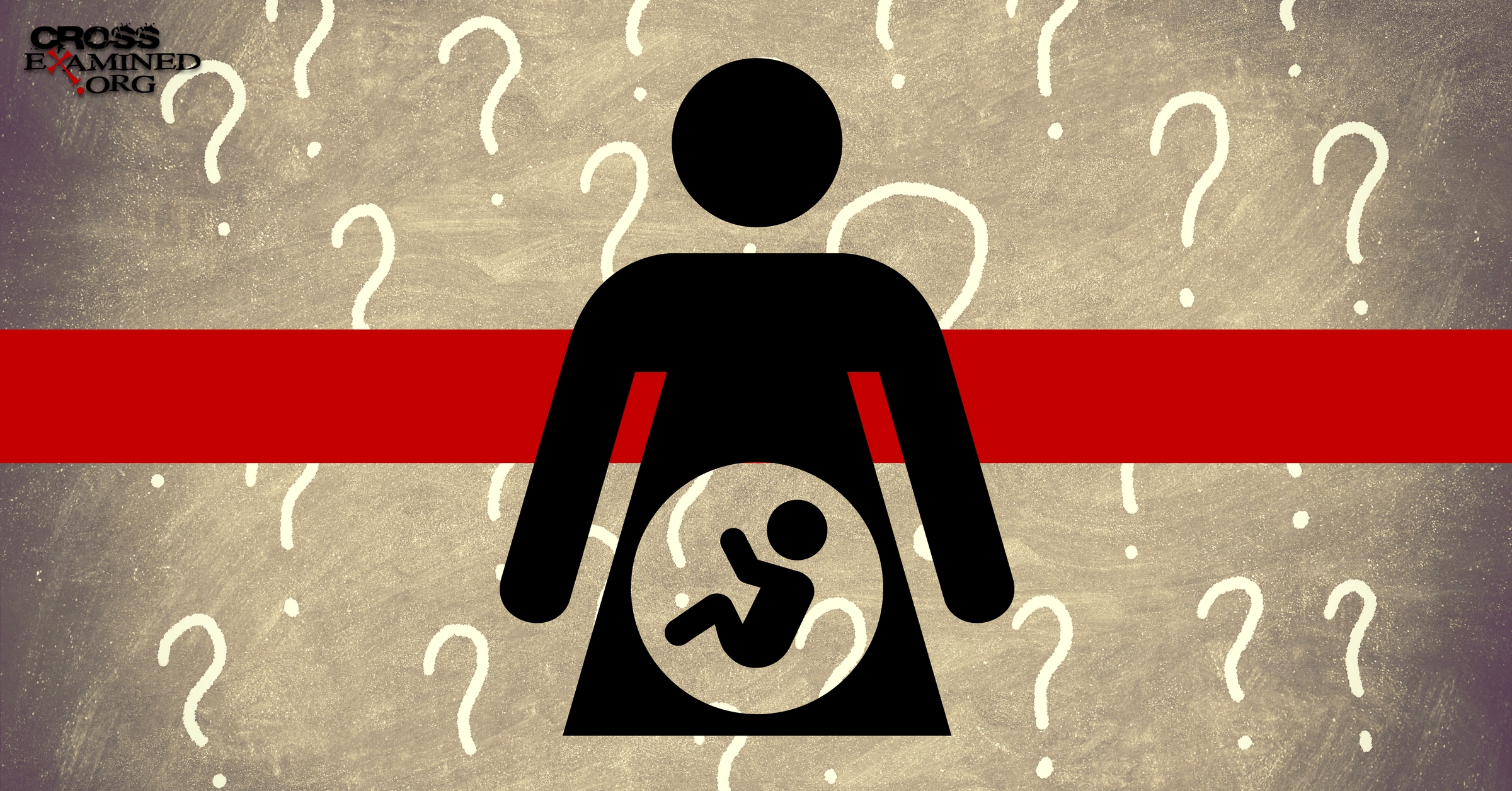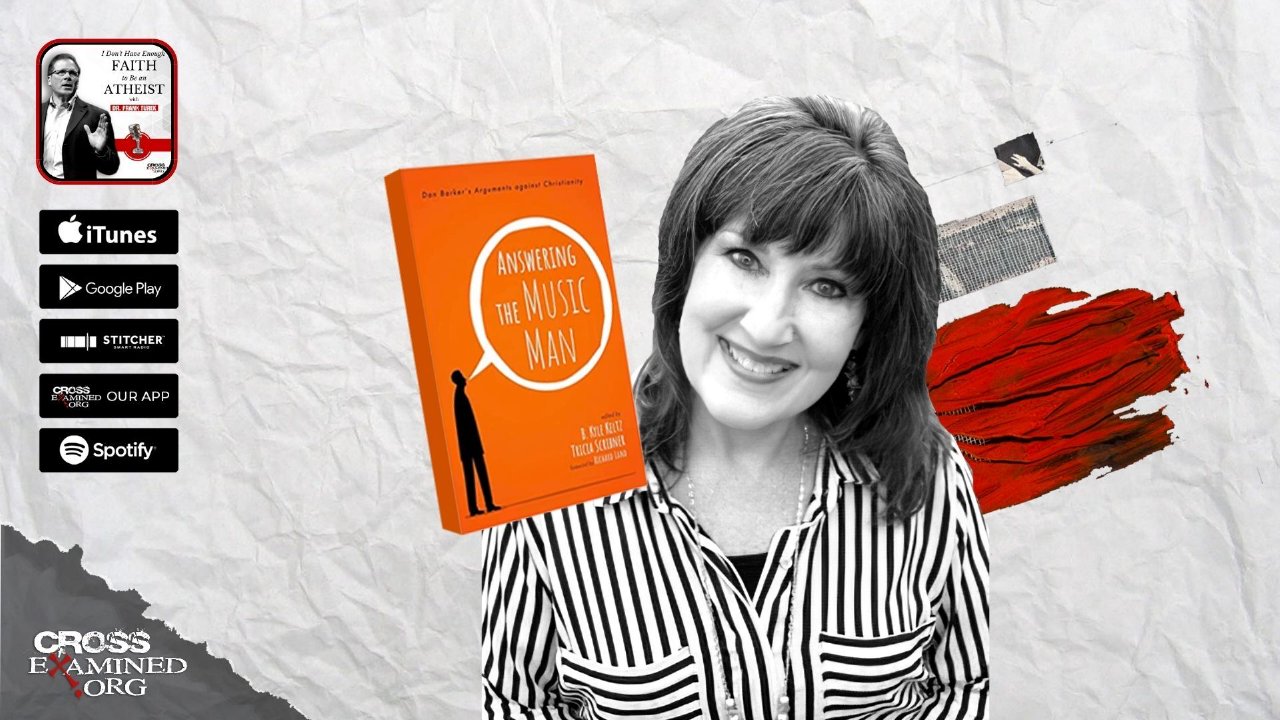How to Build a More Discerning, Less Naïve, and Better Culturally Engaged Church
In my last article, Christian Naivety is Harming the Church’s Engagement with Today’s Culture; I identified four ways that I’ve seen many Christians respond with naivety to calls for discernment in today’s world. At the end, I asked, “How do we fix this?” and said my answer would be the subject of my next article. This is that article. Since this is a follow-up, please be sure to read my last post before this one for context.
Let me start by saying that the title of this article is a rather sweeping proposition. Obviously, this is a single article, the issues are complex, and I’m not claiming that what I write here is a complete answer to all the problems we have. But I want to offer what I see as some key levers needed to drive change in how Christians engage with today’s culture.
In my years as a marketing executive, I came to deeply appreciate one particular model that people in the marketing field have used for over one hundred years (in various shapes and forms). It’s a simple funnel that describes the psychological stages people go through before committing to an action:
Though this originates in marketing, I’ve noticed many times in the last few years how this model applies to so much in the area of ministry as well. As such, I’m going to use it as a framework for my current subject. If we want to move more Christians to the bottom of the funnel—the action point of being more discerning, less naïve, and better culturally engaged—here are the key levers I see at the awareness, interest, and desire points leading there.
-
Grow awareness of worldview differences by addressing biblical illiteracy.
Every time there’s a heated discussion on social media about some issue of discernment (calling out sin, the intersection of morality and politics, etc.), you can count about 5 seconds before a Christian drops a comment reminding everyone involved that Jesus says not to judge.
Or that Christians just need to “love” people (however, the person defines that).
Nothing to me represents a bigger lack of biblical literacy than when people make those two culturally popular comments, completely lacking in context and understanding of what the Bible says on these subjects.
Now, if research showed that Christians read their Bibles consistently and deeply and we were still seeing pervasive comments that suggest a lack of understanding, I would be writing here about the need for more guidance in Bible study. Guidance is surely important too, but the research shows many Christians aren’t even reading the Bible in the first place.
A study by LifeWay Research, for example, found that only 45 percent of those who regularly attend church read the Bible more than once a week. Almost 1 in 5 churchgoers say they never read the Bible, and that’s about the same number who read it every day.
If a person doesn’t realize that their understanding of the Bible lacks appropriate context and depth, they end up navigating the stormy cultural waters in whatever way happens to make sense to them based on what they think the Bible says. Ironically, without an accurate biblical anchor, their Christian views get completely watered down by the cultural waves…and discernment no longer functions effectively. They’re less able to engage effectively with culture because they aren’t even fully aware of how a biblical and secular worldview really differ.
A less naïve, more discerning church must start with deeper biblical literacy. This should be a top priority for churches everywhere.
-
Grow interest in cultural engagement by addressing (lack of) conviction.
Even if a person gains a better understanding of what the Bible says on relevant cultural topics (the awareness I just addressed), it doesn’t mean they’ll be interested enough to become culturally engaged. There could be many reasons for that, but there’s one that’s especially problematic: a lack of conviction that Christianity is objectively (and exclusively) true.
Pew Research shows that 65 percent of Christians believe many religions can lead to eternal life. This, of course, is another example of pervasive biblical illiteracy; the Bible clearly claims that only through Jesus is there eternal life (see Chapter 7, “Did Jesus Teach That He’s the Only Way to God?” in Talking with Your Kids about Jesus for more on this). If a person believes that Christianity is one of many worldviews that ultimately leads to the same truth, they aren’t going to be all that interested in standing up for what they perceive to be just one of those so-called “truths.”
A church filled with Christians who lack conviction that Christianity is the one true worldview is a church filled with Christians who will never care enough to challenge a non-Christian culture.
This is why there’s a desperate need for apologetics in the church today (apologetics is the study of why there’s good reason to believe Christianity is true and how to defend the faith against various challenges). Christians need to understand: 1) the evidence for God’s existence (see chapters 1-6 in Talking with Your Kids about God); 2) why multiple religions cannot be true (see chapter 10 in Keeping Your Kids on God’s Side); 3) the evidence for the resurrection (i.e., the truth test for Christianity as the one true religion—see part 4 of Talking with Your Kids about Jesus); and 4) the evidence for the reliability of the Bible (see part 4 in Keeping Your Kids on God’s Side).
Knowing why there’s good reason to believe Christianity is objectively true—and why that truth makes an eternal difference—is a critically important step toward building a church that cares enough to stand for truth.
-
Grow desired or engagement by destigmatizing the relationship between politics and religion.
Let’s now say that we have a person who is aware of what the Bible says on today’s hot topics, and they’re interested in engaging culture because they’re convicted that the Bible offers the one true picture of reality.
That doesn’t mean they’ll actually do something.
Marketers are well aware that awareness and interest do not always lead to a strong desire to do something because there’s often some kind of barrier. There are a lot of barriers I could list here with respect to cultural engagement, but a major one I’ve seen is the prevailing stigma about mixing politics and religion.
Just saying the words “politics” and “religion” in the same sentence immediately puts people on the defensive. Unfortunately, many pastors and Christian leaders have emphasized a generic dichotomy between the two areas, and over time the stigma of mixing them has grown. Consequently, when important cultural concerns arise—such as the ideology of the Black Lives Matter organization (which I discussed in the last couple of posts)—many Christians automatically bucket those questions into the “don’t touch this” category of “politics and religion,” as if it’s their Christian duty to stay out of it. Meanwhile, people start burning Bibles as part of BLM protests, and Christians are surprised! If you paid attention to their underlying ideology in weeks leading up to this, it’s not surprising at all.
We need to be able to think in more nuanced ways about the interaction of politics and religion if we’re ever going to have a more culturally engaged church that isn’t taken by naive surprise as hostility to Christianity increases.
Here are a few quick things I think we should be able to all agree on:
- While some “political” issues are worldview neutral (e.g., local zoning laws), many are not (e.g., abortion or religious freedom laws).
- When we’re talking about issues where biblical morality conflicts with secular morality, someone’s morality will be legislated; legislation based on a secular worldview isn’t the “neutral” option.
- Acknowledging that there are political issues that involve the moral direction of our country and that Christians should care enough to be engaged in such areas, is not the same as saying one political party or the other represents Christianity. It’s also not the same as saying that we’re looking to a political leader to be our savior, or that we think we’ll eventually build an earthly utopia. These are often the strawmen people try to knock down when claiming Christians shouldn’t mix their faith with politics.
- There are also many political areas where Christians can legitimately disagree. For example, we should all agree that God cares for would-be immigrants, but we may have very different policy opinions on how best to process immigration in this country. Identifying where grey exists is important for maintaining charitable conversation among Christians while uniting on issues that should be more black-and-white for anyone with a Christian worldview.
In short, we need to quit ending culturally relevant conversations before they begin by perpetuating the idea that politics and religion shouldn’t mix. Of course, they should, in some cases.
In all three of these areas, there is much that any pastor could do in a church through sermons, groups, studies, initiatives, and more. But that doesn’t mean others can’t make a significant impact as well. For example, you can:
- Use social media to share biblically-sound articles that educate others about cultural issues from a Christian worldview. (I do my best to share a variety of such articles from my author Facebook page—you can follow me there if you don’t already.)
- Take the time to engage in a thoughtful dialog when you see Christians make comments online that lack biblical understanding. It’s worth the time even if the person you initially respond to doesn’t seem to appreciate it—remember that others are reading too. If a comment is best addressed privately, do it that way. But resist the urge to just be silent because that’s the easy thing to do.
- Lead a Bible study (online or in person, through your church or on your own).
- Lead a book study that addresses current cultural questions from a biblical worldview.
- Start a group to learn apologetics. (If you’re interested in starting a group specifically for parents and grandparents, we give you all you need to get going with Grassroots Apologetics for Parents. You can start an in-person or online chapter!)
- Encourage your pastor to address more of these questions in sermons.
- Work with your church to invite subject matter experts to provide training. Many of these experts are currently offering training online. For example, the Life Training Institute a 4-day Zoom event next week that anyone can sign up for: How to Survive Being Pro-Life on Campus in a Cancel Culture. Many apologetics speakers are also offering remote sessions right now. The Center for Biblical Unity is offering trainings on a biblical approach to current racial questions. So much is available!
- Commit to the serious discipleship of your kids. They are literally the future. Training them in the same ways I’ve mentioned here for adults is just as important.
With more discernment from biblical literacy, more interest from conviction, and more willingness to engage by removing the “politics vs. religion” barrier, we can shape a better culturally engaged church. Perhaps one of the positives that will come from the chaos of this year will be a wider recognition that these things are so desperately needed in the body of Christ.
Recommended resources related to the topic:
American Apocalypse MP3, and DVD by Frank Turek
Correct, NOT Politically Correct: How Same-Sex Marriage Hurts Everyone (Updated/Expanded) downloadable pdf, Book, DVD Set, Mp4 Download by Frank Turek
The Case for Christian Activism MP3 Set, DVD Set, mp4 Download Set by Frank Turek
You Can’t NOT Legislate Morality mp3 by Frank Turek
Fearless Generation – Complete DVD Series, Complete mp4 Series (download) by Mike Adams, Frank Turek, and J. Warner Wallace
Natasha Crain is a blogger, author, and national speaker who is passionate about equipping Christian parents to raise their kids with an understanding of how to make a case for and defend their faith in an increasingly secular world. She is the author of two apologetics books for parents: Talking with Your Kids about God (2017) and Keeping Your Kids on God’s Side (2016). Natasha has an MBA in marketing and statistics from UCLA and a certificate in Christian apologetics from Biola University. A former marketing executive and adjunct professor, she lives in Southern California with her husband and three children.
Original Blog Source: https://bit.ly/30RAGmC













Leave a Reply
Want to join the discussion?Feel free to contribute!